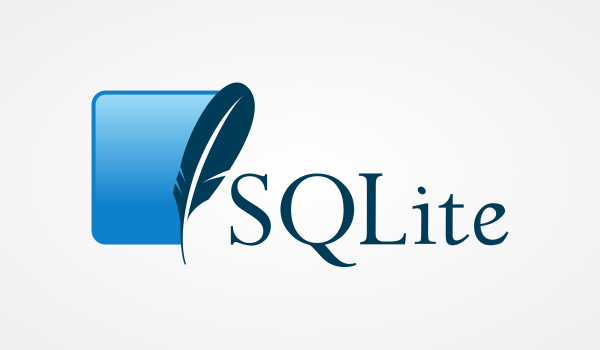SQLite Database
The SQLite software library lets developers create and implement a serverless, self-contained, transactional SQL database engine without the need for any sort of configuration. As an SQL database engine SQLite enjoys highest popularity in terms of deployment. SQLite comes with a public domain source code, and it is small and comes with a minimal footprint. Advanced and intermediate users can use tools like SQLite studio to act as an SQLite database browser.
About SQLite

SQLite finds primary use to perform SQL queries on the two popular types of databases- MySQL and Oracle. Other than the ease of setup and small size some of the aspects of the technology that make it so popular are:
- You can send query results as emails
- It has a user-friendly overall better interface than its closest competitors. Further, you can use tools like SQLite studio to browse and interact with the library.
- You can compile a reference list of executed queries and you can choose to re-execute them
- You can execute queries in batches through batch mode
- You can run up to five simultaneous queries
- Open and keep up to ten distinct database connections
- Use the MIGRATE functionality to move data between two different databases
- Make custom data formats to show dates
SQLite supports Oracle Lite, and PL/SQL and you can port the software between all the major OS platforms including Unix, Linux and of course Windows.
Key Features of SQLite
The key features of SQLite are unique and accounts for its widespread popularity. Such key features include:
- Open source and free to use. You can search SQLite online and download the small software.
- No type of license is necessary to use the software library
- It is Serverless as it is not necessary to have a server system or process
- It is extremely flexible
- You can work on multiple databases concurrently in the same session
- Needs zero-configuration
- Does not involve any setup or administration
- The DBMS system is cross-platform
- You can use it even on embedded OS instances
- It makes efficient data storage easy
- It supports a variable number of column lengths and so you need to distribute spaces only to the necessary fields
- The simple and easy to use API supports many popular programming languages
- You can use it on Linux, Unix, iOS, Mac, Android, and Windows systems
Usage Consideration
But like real life including scientific and technological innovations, SQLite does indeed have several usage considerations that make it unsuitable for all projects. SQLite’s type system is notoriously bad but in the recent past it has incorporated provisions for the strict typing method which makes things better but only relatively. The new type of system will take its due course of time before finding use in languages, libraries and frameworks that makes use of SQLite.
Migration issues are a real headache for database administrators and developers using SQLite. The technology does not support live migrations. That means for you to migrate SQLite, you will need to create a new table first, copy the old table data and paste it in the former and then switch over. For large databases with plenty of data it can be a very time-staking and cumbersome process and in all probability, businesses needing to achieve it will need to put up with downtimes. The length of the downtime can vary. For small databases, a few seconds or at most a few minutes will be all it takes. But for data rich databases migration times goes up longer and can even infuriate you with the migration’s pace.
With SQLite it is hard to geo-shard an app that makes use of the library. It might be hard but not impossible. Further, several tools are in development stages that can address this issue. Alternative using caches and CDNs too could serve almost all geo-sharding needs.
Other important things you should consider before deciding on SQLite are:
- Support for web frameworks is inadequate
- It is not always suitable for deployment on a single server
- There are a few failure modes of SQLite that most programmers are oblivious of
Businesses need not worry, iSummation with its expert pool of developers and database managers can help you perform almost all SQLite database tasks rather easily.
Top use cases of SQLite
SQLite is after all the most popular software library of its kind and that means there are heavy and solid reasons behind its chequered cap. Some of the best use cases of SQLite involve:
Compatibility with IoT devices and embedded devices
Websites
Application file format
Cache for enterprise data
Data analysis
Data transfer format
Server-side database
Replacement for disk files
File archive and/or data container
Stand-in for an enterprise database during demos or testing
Internal or temporary databases
Experimental SQL language extensions
Education and Training
Lots of free tools like SQLite studio to use the software library.
Lightweight Advantages
While we have touched on some of SQLite’s features, it is time we examined these advantages a little bit more fully:
SQLite stands out in how light it is despite being a weighted database. It functions smoothly and as per expectations. It is easy-to-use, and it is usable for modern apps and connected devices like IoT besides doing part-time job as an embedded software on a broad range of consumer goods like:

Mobile and smartphones

TVs and Smart TVs

Home electronic devices

Cameras
The other advantages are
Enhanced Performance
Great Reliability
It is highly portable
It is accessible
The last interesting thing to not about SQLite is that it is usually backward compatible
Zero Installation
Vulnerable to fewer bugs especially when compared to custom I/O codes
Portable
It makes everything simple and cuts down on costs
Experts opine that the SQLite library works good on many projects including web sites that experience high traffic and similarly enormous number of users. Some noteworthy use cases where SQLite might NOT be the best choice include:
10,000s of writes/sec, 1000s of large writes and long-lived transactions
So, almost for all usage scenarios SQLite will deliver on its promises. The way SQLite makes things simple is eminently laudable. It eases operational burden and even testing. If you are feeling hesitant knowing about such feature gaps, don’t be, your SQLite partner iSummation will make things easy for you. Get in touch with us today!

